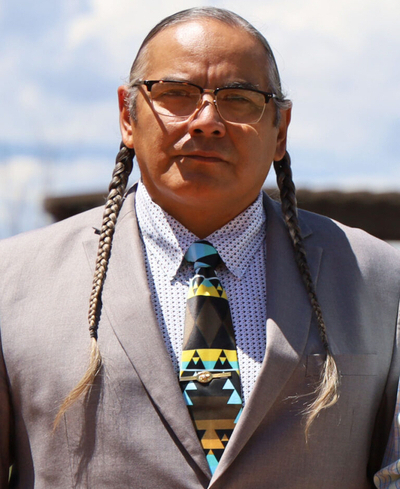
- Details
- By Marvin Weatherwax, chairman of the Coalition of Large Tribes
Guest Opinion. The Biden-Harris Campaign promised tribal nations that, among other things, their Administration would “Ensure fulfillment of federal trust and treaty obligations including by working to address chronic underfunding of unmet federal obligations to Indian Country.”
On the same Campaign page directed to tribes, they further criticized the Trump Administration stating the prior Administration had “abandoned our nation’s treaty obligations to tribal nations.” At the most recent White House Tribal Nations Summit, the Biden-Harris Administration congratulated themselves for, among other things, “honoring federal trust and treaty responsibilities, protecting Tribal homelands,” and produced a new “Best Practices Report for Tribal Treaty and Reserved Rights.”
And yet, yesterday, an Assistant to the Solicitor General argued forcefully to the United States Supreme Court that the federal government has no duty to do anything to ensure the Navajo Nation’s Treaty and Reserved rights to water. The callous disrespect for tribal Treaty rights shown by the United States Department of Justice is shocking. DOJ routinely undercuts all the good work other Departments do to uplift Indian Country. It does not matter how much goodwill is elsewhere in the Administration if DOJ continues to spout outdated colonialist arguments in the courts. Honoring Treaty obligations cannot be accomplished if your first step is always to argue you don’t have any obligations.
As the Coalition of Large Tribes (COLT) stated in our Amicus Curiae brief submitted to the Court, “The relief sought here — an injunction requiring the United States to properly evaluate the water rights that are held in trust by the United States on behalf of the Navajo Nation, subject to the ultimate plenary power of Congress — is a necessary step toward fulfilling its most basic responsibilities to tribes as their trustee.”
COLT calls on the United States to stop trying to shirk this most basic responsibility.
Further, COLT reiterates our letter sent on November 15, 2021, that calls on the Biden-Harris Administration to appoint a high-level Native American political appointee to the Department of Justice to better advise Attorney General Garland on Indian law matters. There has not been a single Native American political appointee to the Department of Justice despite repeated Campaign promises to focus on the crisis of public safety in Indian Country. This glaring omission continues to put the DOJ at cross-purposes with the rest of the Administration. DOJ’s approach to Indian Country issues is shameful and COLT is calling it out.
DOJ’s approach to tribal sovereignty and respect for treaty rights, including access to clean drinking water sufficient for the people of the Navajo homeland, is an antiquated view of the federal government’s responsibility to tribal nations, is incompatible with the overall Biden-Harris Administration’s policy toward indigenous communities, and, consequently, COLT is calling for reconsideration of DOJ’s positions on tribal cases and asking for it to be held accountable for its legal obligations to all of Indian country.
Marvin Weatherwax is a tribal citizen of the Blackfeet Nation and serves as chairman of the Coalition of Large Tribes (COLT). Additionally, he serves in the Montana State House of Representatives.
Help us defend tribal sovereignty.
At Native News Online, our mission is rooted in telling the stories that strengthen sovereignty and uplift Indigenous voices — not just at year’s end, but every single day.
Because of your generosity last year, we were able to keep our reporters on the ground in tribal communities, at national gatherings and in the halls of Congress — covering the issues that matter most to Indian Country: sovereignty, culture, education, health and economic opportunity.
That support sustained us through a tough year in 2025. Now, as we look to the year ahead, we need your help right now to ensure warrior journalism remains strong — reporting that defends tribal sovereignty, amplifies Native truth, and holds power accountable.
 The stakes couldn't be higher. Your support keeps Native voices heard, Native stories told and Native sovereignty defended.
The stakes couldn't be higher. Your support keeps Native voices heard, Native stories told and Native sovereignty defended.
Stand with Warrior Journalism today.
Levi Rickert (Potawatomi), Editor & Publisher

